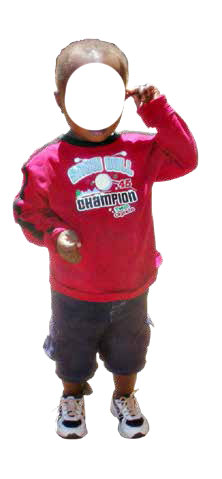
Chenai spent a night in cells at Harare Central Police Station in 2019 when she was detained with her mother, who had been picked up as Zimbabwe Republic Police officers indiscriminately apprehended people in the city following an anti-government protest.
Chenai and her mother were later released following the intervention of Zimbabwe Lawyers for Human Rights (ZLHR), which took up the case to protect the child from further detention.In Zimbabwe, implementation of Aspiration 8 of Agenda 2040, which emphasises that children should benefit from a child-sensitive criminal justice system, has been slow, and in many instances the actions of state security agents have been ruthless to the extent of posing a danger to children.
Also, the detention of *Moses and many other children in almost uninhabitable cells and prisons together with hardcore criminals is an affront to Article 30 of the African Children’s Charter, which aims at ensuring that children are not incarcerated with their mothers.
Despite being party to the African Charter on the Rights and Welfare of the Child and a participant in the Agenda 2040 programme, Zimbabwe continues to detain toddlers with their mothers. Some children, like Nigel Mutemagawu, spent several months in prison, where their mothers would be incarcerated.
Nigel became known as the world’s “youngest terrorist” after he was jailed together with his parents who were facing politically motivated trumped-up charges. Then a toddler, Mutemagawu was abducted by state security agents in October 2008 during the height of Zimbabwe’s political crisis together with his parents and held incommunicado at various secret locations for allegedly plotting to overthrow the late former President Robert Mugabe. Together with 19 other political and human rights activists, Nigel was captured alongside his mother, Violet Mupfuranhewe and father, Collen, in Banket, located in Mugabe’s home province of Mashonaland West. He was allegedly ill-treated by state security agents.
His parents’ captors denied knowledge of their whereabouts and only surrendered them to a police station in Harare in December 2008 after human rights lawyers mounted a vigorous search for them. Nigel was only released to his relatives in January 2009 following the intervention of ZLHR, while his parents remained incarcerated at Chikurubi Maximum Prison.
As a result of the abduction and detention at Chikurubi Maximum Prison, Nigel suffered from hallucinations. “We are worried that his behaviour is no longer normal. He seems not to have forgotten the wild experience that he endured because the image of what transpired while in detention is very much in his mind,” said his father Collen during an interview with The Legal Monitor after he was released from prison.“Up to this day, he still shouts at his friends, statements such as “D1-Terror!”, which are names that were called out by prison guards while we were detained at Chikurubi,” his father said.
Chikurubi Maximum Prison, where Nigel was held, is notorious for its atrocious conditions. In 2009, just about a year after his abduction, the then three year-old boy dropped out of nursery school in Banket due to the trauma he suffered.ZLHR continues to campaign for an end to the practice, noting that it violates local and international legal instruments that are aimed at upholding the rights of children.*Name changed
Post published in: Featured

